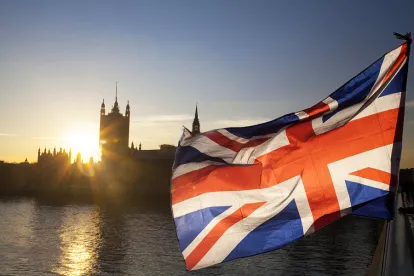The UK National Crime Agency (NCA) has been prevented from reversing the first blow to its previously winning record in obtaining Unexplained Wealth Orders (UWOs).
On 19 June the Court of Appeal ruled that the NCA had ‘no real prospect’ of succeeding in overturning a decision by the High Court in April 2020 to discharge three UWOs, also deciding that there was ‘no compelling reason’ why the appeal should be heard.
Introduced by the Criminal Finances Act 2017, branded the ‘McMafia Law’ by some commentators, the UWO provisions provide UK law enforcement authorities with the opportunity to apply to the High Court for an order requiring those who hold assets to prove that they were obtained from legitimate sources. Failure (without a reasonable excuse) to comply with a UWO results in a presumption that the property named in the order is ‘recoverable property’, leaving it susceptible to an application for civil recovery under Part 5 of the Proceeds of Crime Act 2002 (POCA 2002) (see GT Alert, Prove It or Lose It! - Part I: Unexplained Wealth Orders).
The provisions were first used in 2018 by the NCA in a now famous case against Zamira Hajiyeva, the wife of the former chairman of the International Bank of Azerbaijan. The former chairman in 2016 was jailed 15 years for offences including abuse of office and large-scale fraud against the bank. Having failed earlier in 2020 to appeal the UWO, Ms Hajiyeva must now explain how she came to own her assets, which include a West London mansion and a golf course in Surrey.
‘Inadequate investigation…’
In May 2019 the NCA announced that it had secured three UWOs in respect of ‘prime London property worth tens of millions’. In announcing the orders, Andy Lewis, Head of Asset Denial said:
‘This is the second time the NCA has successfully secured UWOs since the new legislation was enacted. They are a powerful tool in being able to investigate illicit finance flowing into the UK and discourage it happening in the first place.’
‘The individuals behind these offshore companies now have to explain how the three properties were obtained.’
‘The NCA will not shy away from complex and detailed investigations against high profile individuals and professional enablers.’
However, in subsequent proceedings (NCA v Baker and Others [2020] EWHC 822 (Admin)), the Respondents successfully applied to the High Court to discharge all three orders, with Mrs Justice Lang accepting the submission that the case presented by the NCA when the orders were originally granted was ‘flawed by inadequate investigation into some obvious lines of enquiry.’
The Orders were originally obtained at an ex parte hearing, in relation to properties which were said by the NCA to have been obtained ‘as a means of laundering the proceed of unlawful conduct of Mr Rakhat Aliyev, a national of Kazakhstan, who died in prison in Austria on 24 February 2015’. The first and third orders were directed against an individual named Mr Baker, the president of two companies which were the registered owners of the two of the properties. The second order was directed against two companies, the registered owners of the third property.
Having received notification of the Orders and the accompanying Interim Freezing Orders (IFOs) – orders which prohibit property from being dealt with to avoid the risk of any subsequent recovery order being frustrated – the respondents, together with the ultimate beneficial owners (UBOs) of the three properties, Mr Aliyev’s ex-wife and son, provided extensive information to the NCA about the purchase and transfer of those properties. Broadly, the Respondents asserted that Mr Aliyev was unconnected to the properties and that the factual basis for the NCA’s application was incorrect. Nevertheless, the NCA refused to withdraw the Orders, and the Respondents applied to the High Court to discharge them.
In the High Court, the Respondents contended that there had been ‘material non-disclosure and inadequate investigation’ on the part of the NCA. In accepting the second limb of that submission and granting the applications for discharge of the Orders, Mrs Justice Lang considered that the following obvious lines of enquiry had been inadequately investigated:
-
The gathering of information in relation to the independent wealth of Mr Aliyev’s ex-wife and son, information which would have been publicly available, to explore the possibility that they had sufficient wealth to have acquired the properties in question.
-
The likelihood that Mr Aliyev's ex-wife or children were involved in laundering the proceeds of his suspected unlawful conduct in light of the fact that their relationship had broken down.
-
Consideration of confiscation proceedings issued against Mr Aliyev following an investigation in Kazakhstan which resulted in the confiscation of his assets, but not those of his ex-wife, and which concluded that Mr Aliyev had not transferred any illegally acquired funds or assets to his ex-wife.
The NCA was quick to announce its intention to appeal Mrs Justice Lang’s decision. Graeme Biggar, the NCA’s Director General of the National Economic Crime Centre, explained that the appeal would ‘…establish the case law on which future judgments will be based’. However, for now that chance has gone.
The Outlook: Officer, Have You Done Your Homework?
The Court of Appeal’s ruling may serve as a reality check for NCA officers, who may have grown comfortable with the UWO process following a run of high-profile successes.
Mrs Justice Lang’s judgment contains some stark and important lessons about the duty of those charged with investigating similar scenarios which will often involve cross-jurisdictional issues and conduct which may have occurred abroad a number of years ago. In those circumstances, UK law enforcement will face a difficult challenge to ensure that they address the requisite legal tests.
We have previously highlighted this issue in the context of Civil Recovery Orders (see GT Alert, Prove It or Lose It! Part II: Civil Recovery), where the applying enforcement authority is not able to rely on a presumption following a failure by the respondent to comply with a UWO. Proving that conduct which occurred outside of the UK was unlawful may require a high degree of international cooperation, and proving that the property in question is the product of that unlawful conduct will normally involve extensive asset tracing; this may prove challenging even for enforcement authorities.
In the context of UWOs, Mrs Justice Lang’s judgment clarifies that enforcement authorities will have to work harder in the future to unravel complex and international fact patterns, particularly with regard to UBOs and their independent wealth, in order to satisfy the court that the requisite tests have been met.
These are lessons of wider importance and application to the range of investigative powers now available to UK law enforcement under the POCA 2002 (including Account Freezing and Forfeiture Orders – see GT Alert, Prove It or Lose It! Part III: A Step Too Far? Account Freezing Orders & Account Forfeiture Orders).
* This GT Alert is limited to non-U.S. matters and law.




 />i
/>i

